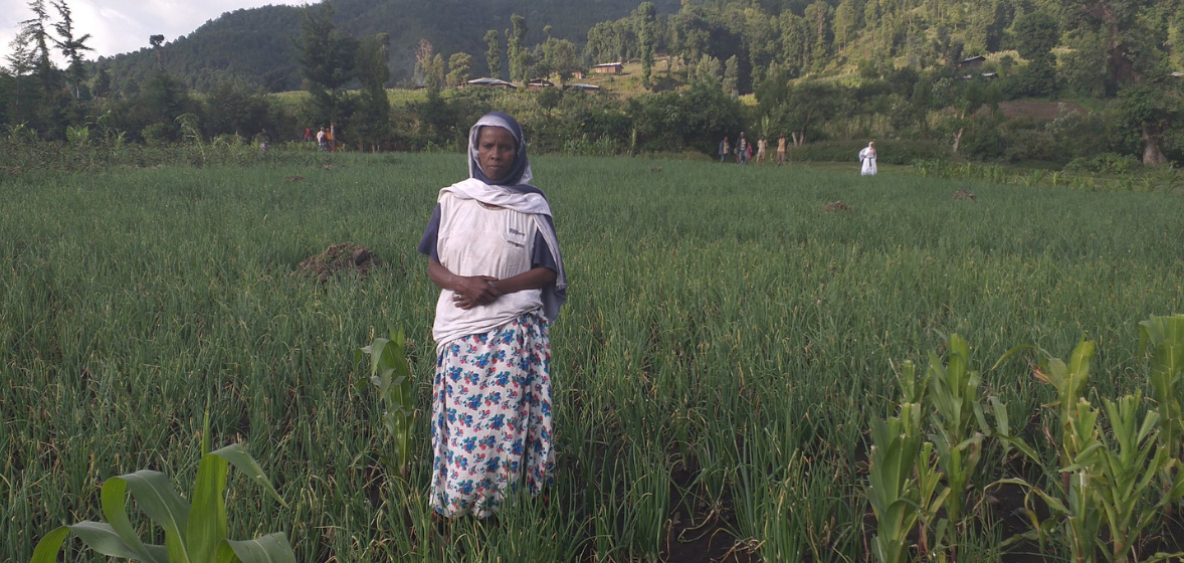 A woman beneficiary in Ethiopia’s Doba District. (Credit: UNDP)
A woman beneficiary in Ethiopia’s Doba District. (Credit: UNDP) The RFS Ethiopia project has been monitoring gender and socioeconomic indicators over the last five years. Now, they are sharing some of the context-specific pieces of the project puzzle that are mainstay in communicating their successes towards natural resources management that is gender-responsive.
Agriculture is no small matter in Ethiopia. It makes up 46% of the country’s gross domestic product, and over 90% of this is produced by smallholder farmers, yet in 2020, nearly 20% of the population was severely food insecure.
The Resilient Food Systems (RFS) Ethiopia project, led by the United Nations Development Programme and implemented by the Environmental Protection Authority (EPA) of Ethiopia, is working towards enhancing food systems resilience by addressing environmental drivers and strengthening institutional frameworks. The project is using an integrated landscape management (ILM) approach which combines land management, integrated natural resources management, water and climate-smart agriculture, value chain support and gender responsiveness.
This last point has not been overlooked by the project, which takes into full consideration the fact that women make up more than 40% of the agricultural labour force and head 25% of farming households. Without them, a huge part of the activities undertaken in the project would not be possible.
As one of 12 country projects under the RFS programme, the Ethiopia team is committed to gender-responsive project implementation, or going beyond a ‘do no harm’ approach and making a conscious effort to address gender and social inequalities through the project activities. They are also committed to monitoring the implementation of the project, so a robust planning framework and a strong set of indicators have been part of the project since the onset.
Gender indicators are important for ensuring sustainable natural resources management because they demonstrate socio-economic and gender-responsive transformation, inform adaptive actions in projects, programmes and policies, and ensure that gender is mainstreamed throughout the project.
To help guide this, the RFS Ethiopia project has been monitoring transformation in the project area under a key set of indicators developed at the project’s onset. They are tailored to match the context under which the project is implemented under key project themes. Here are some highlights, just to name a few:
Enhanced capacity to improve agricultural productivity & production
Promote and develop rural entrepreneurship and livelihood diversification
Enhanced Integrated Natural Resource Management
Leadership, management, and administration
With the RFS Ethiopia project wrapping up in 2023, the results of these indicators and the project accomplishments are going to take centre stage in communicating the successes of the RFS Ethiopia project, showing the world how mainstreaming gender makes for better natural resource outcomes.
Stay tuned for the evidence!
Subscribe to our monthly newsletter to receive updates on stories directly from the field across all our projects, upcoming events, new resources, and more.